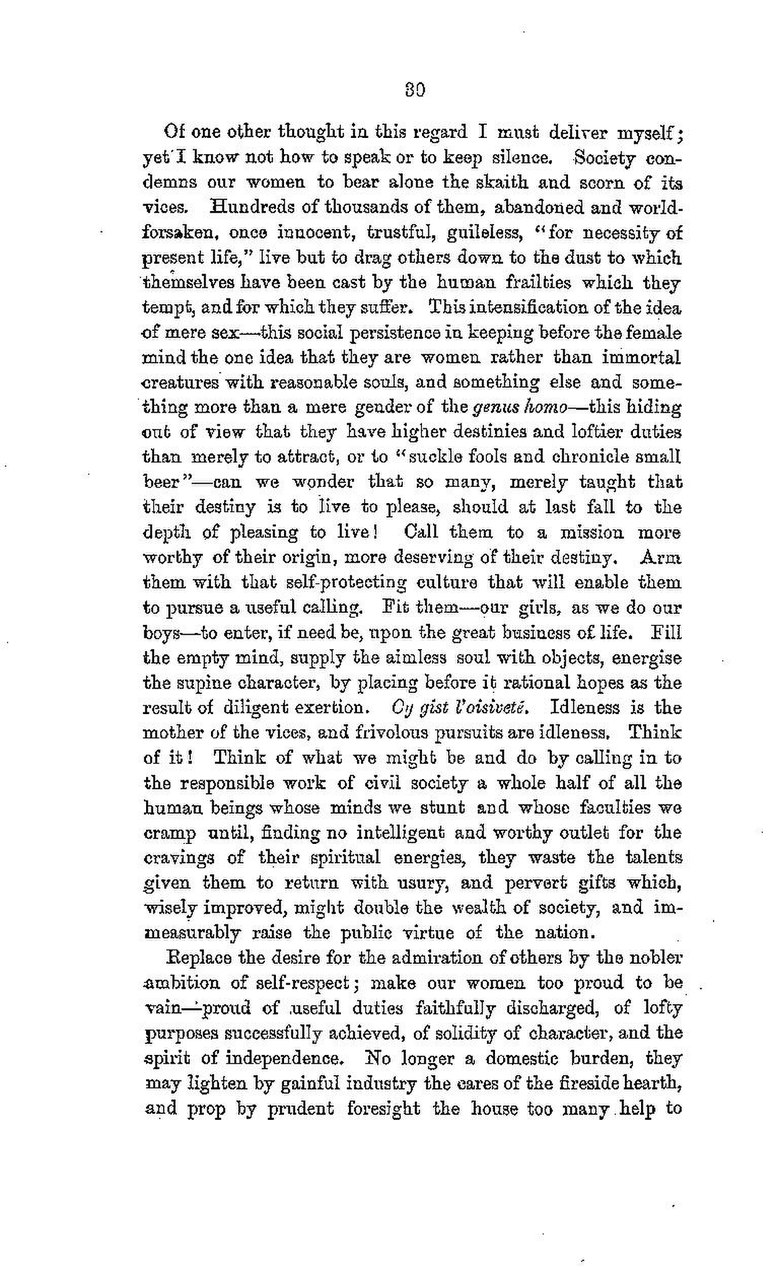30
Of one other thought in this regard I must deliver myself; yet I know not how to speak or to keep silence. Society condemns our women to bear alone the skaith and scorn of its vices. Hundreds of thousands of them, abandoned and world forsaken, once innocent, trustful, guileless, "for necessity of present life," live but to drag others down to the dust to which themselves have been cast by the human frailties which they tempt, and for which they suffer. This intensification of the idea of mere sex—this social persistence in keeping before the female mind the one idea that they are women rather than immortal creatures with reasonable souls, and something else and something more than a mere gender of the genus homo—this hiding out of view that they have higher destinies and loftier duties than merely to attract, or to "suckle fools and chronicle small beer"—can we wonder that so many, merely taught that their destiny is to live to please, should at last fall to the depth of pleasing to live! Call them to a mission more worthy of their origin, more deserving of their destiny. Arm them with that self-protecting culture that will enable them to pursue a useful calling. Fit them—our girls, as we do our boys—to enter, if need be, upon the great business of life. Fill the empty mind, supply the aimless soul with objects, energise the supine character,by placing before it rational hopes as the result of diligent exertion. Cy gist l'oisiveté. Idleness is the mother of the vices, and frivolous pursuits are idleness. Think of it! Think of what we might be and do by calling in to the responsible work of civil society a whole half of all the human beings whose minds we stunt and whose faculties we cramp until, finding no intelligent and worthy outlet for the cravings of their spiritual energies, they waste the talents given them to return with usury, and pervert gifts which, wisely improved,might double the wealth of society, and immeasurably raise the public virtue of the nation.
Replace the desire for the admiration of others by the nobler ambition of self-respect; make our women too proud to be vain—proud of useful duties faithfully discharged, of lofty purposes successfully achieved,of solidity of character, and the spirit of independence. No longer a domestic burden, they may lighten by gainful industry the cares of the fireside hearth, and prop by prudent foresight the house too many help to
